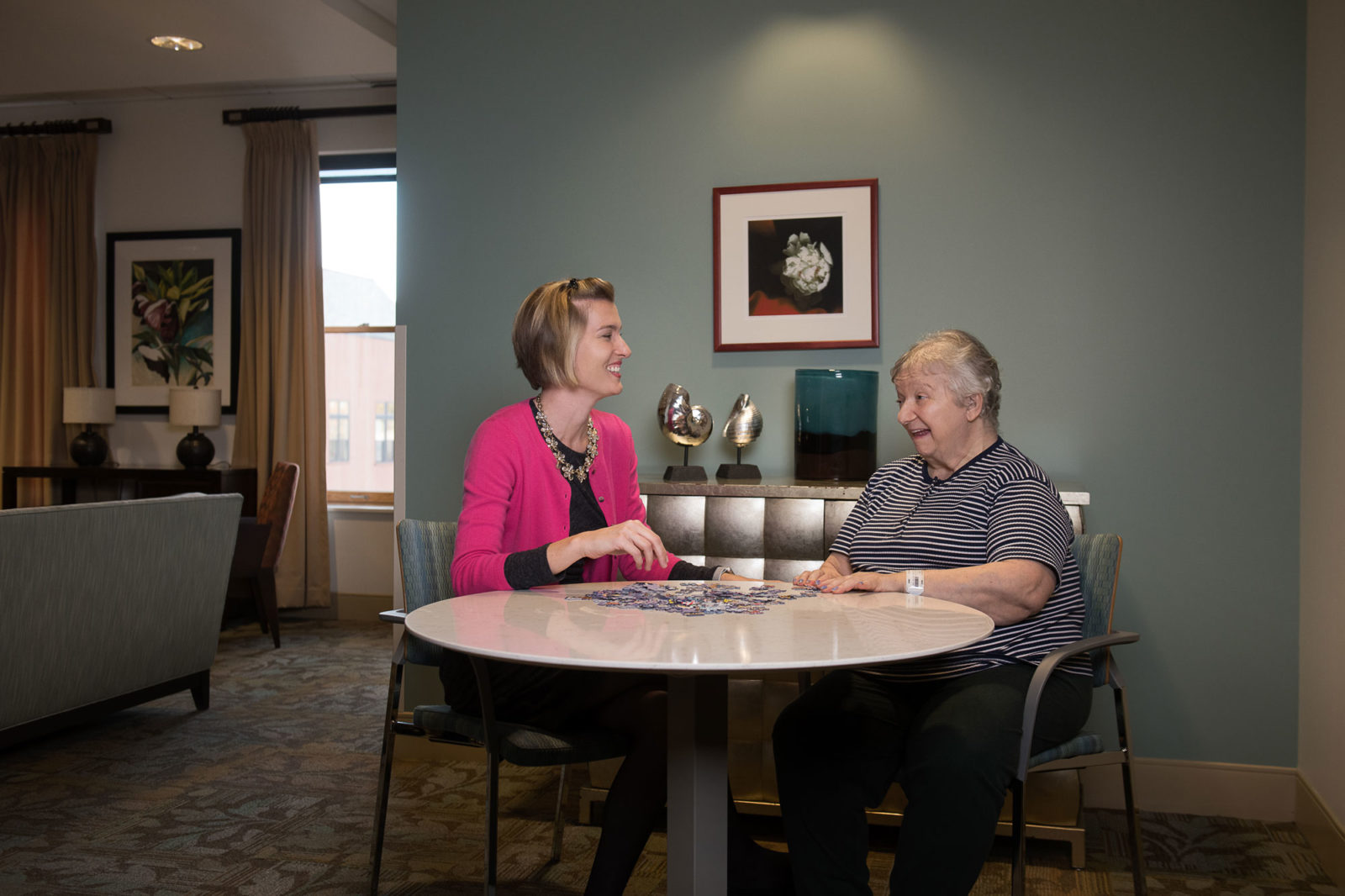Memory Care
The cognitive decline of a family member due to Alzheimer’s disease or other related dementia is one of life’s most difficult and troubling events. Family members are often overwhelmed by unanswered questions:
- What are the signs and symptoms of Alzheimer’s disease and other dementias?
- Is it really Alzheimer’s disease?
- Is there anything we can do?
- How quickly will memory loss progress?
- What lies ahead?
- Should my dad be driving?
- Should my mother continue to live on her own?
- Why don’t my siblings see what I see in our parent?
- What next?
At LifeCare Advocates, we guide and support you through every step of the difficult challenges of dementia care.
Our Services Include:
Assessing Level of Cognitive Impairment
We provide a clinical assessment of the elder’s cognitive functioning and can give you valuable feedback about the stage of dementia and existing treatment options. We strongly believe that all elders experiencing cognitive decline should receive a thorough medical workup so that the cause of dementia can be accurately diagnosed. Dementia is not a normal part of aging, and many forms of dementia are reversible. At LifeCare Advocates, we strongly recommend our client get the best and most thorough evaluations at their doctor’s office or at a local memory clinic.
Knowledge of Treatment Options and Medications
There is currently no cure for Alzheimer’s disease, but there are many different pharmacological and behavioral treatments. LifeCare Advocates’ Care Managers have extensive knowledge of Alzheimer’s-related medications and can discuss the pros and cons of treatment with your family. Most importantly, we can help you develop new ways of communicating effectively with the cognitively impaired elder, understanding their limitations, and maintaining your relationship.
Safety Assessments/Driving Issues
Most elders express a clear and resounding preference to remain in their own homes. For the elder with dementia, this wish often conflicts with real concerns about safety at home. Should mom stay at home without supervision? How can we convince dad to accept help? Is it time for my parents to move to assisted living, or even to a nursing home?
LifeCare Advocates’ Life Care Managers provide a comprehensive safety assessment of the elder’s living situation. We offer an analysis of the risks and benefits of remaining at home, and we provide concrete recommendations for services and resources to improve safety and quality of life. When the time comes for an at-risk elder to leave their home, we provide compassionate guidance in the difficult transition to other housing options including assisted living communities and nursing homes.
We can also assist families in dealing with the difficult issue of when it’s time for the elder to stop driving. For many older people and their loved ones, determining when they are no longer safe on the road is a difficult and heart-wrenching process. Frequently, the elder with dementia has impaired judgment and may resist all suggestions to curtail or stop driving. Our Life Care Managers can evaluate the elder’s cognitive functioning to determine fitness to drive, and act as a link to more formal driving evaluation programs in the Boston area. Most importantly, we guide families in developing effective strategies for removing or eliminating risk among older drivers.
Signs & Symptoms
- Memory loss that affects activities of daily living, including dressing or grooming
- Difficulty performing once-familiar tasks
- Lack of interest in activities once considered pleasurable
- Problems with language – word-finding difficulty
- Disorientation to time or place
- Poor or decreased judgment
- Problems with abstract thinking
- Hiding or misplacing things
- Changes in mood or behavior
- Loss of initiative
- Repeating things
- Inability to learn new things
- Getting lost while driving in once familiar neighborhoods
![LifeCare Advocates [logo]](https://www.lcadvocates.com/wp-content/uploads/sites/270/2017/11/logo.png)

